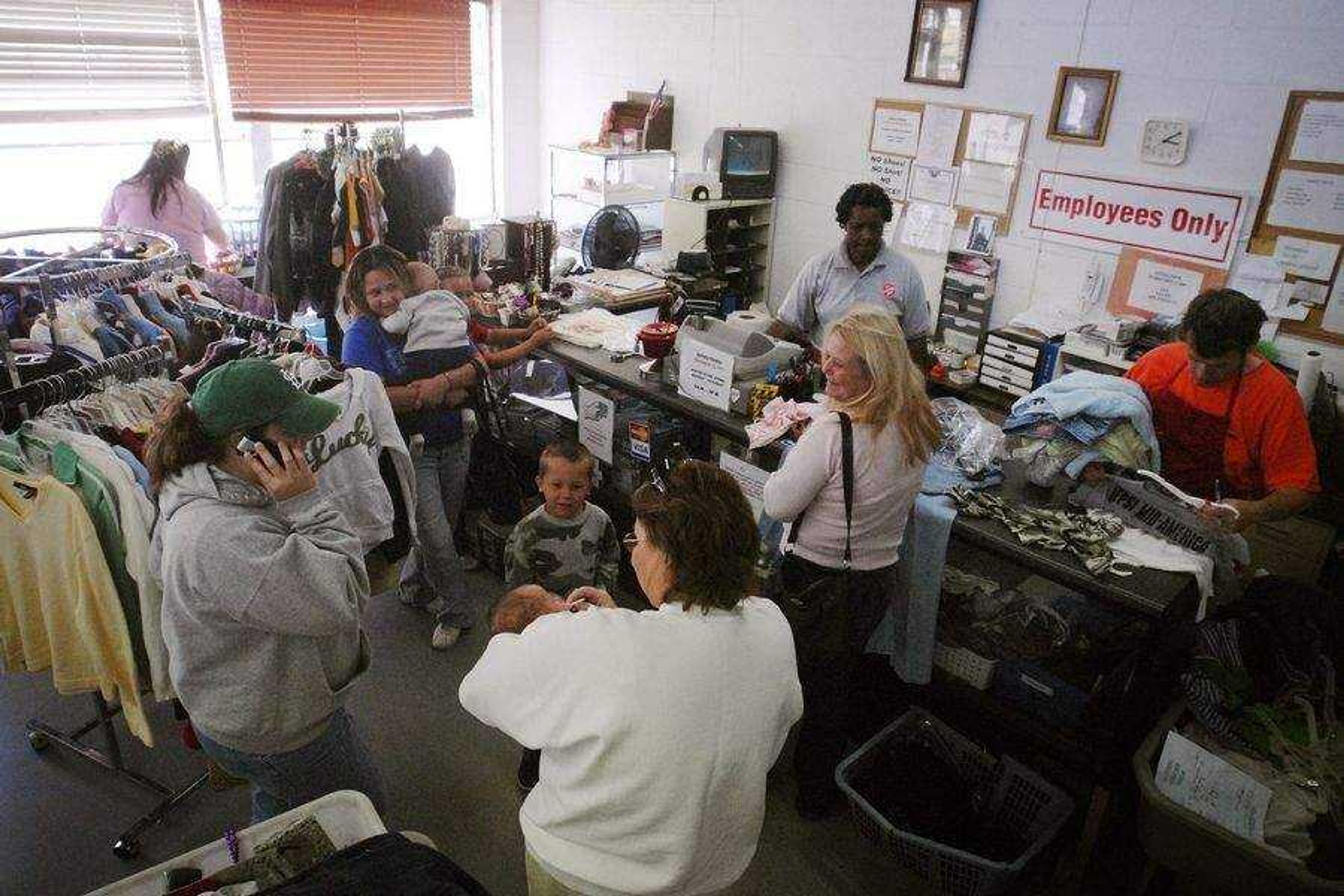New law requiring testing of lead in children's merchandise does not apply to consignment, thrift shops

Thrift and consigment stores do not have to comply with a law requiring 
retailers to test merchandise sold to children for lead, the Consumer
Product Safety Commission has determined.
 Prior to the announcement, area thrift retailers had expressed concern about
the legislation, saying they couldn't afford to test the items and that the
law may put them out of business. ...

Thrift and consigment stores do not have to comply with a law requiring 
retailers to test merchandise sold to children for lead, the Consumer
Product Safety Commission has determined.

Prior to the announcement, area thrift retailers had expressed concern about
the legislation, saying they couldn't afford to test the items and that the
law may put them out of business. The American Specialty Toy
Retailing Association estimates testing for lead would cost between $400 for
a smaller item to thousands of dollars for larger items.

"We're relieved at the moment," said Sheila Kaiser, manager of the Teen Challenge thrift store in Cape Girardeau. "When you're working with volunteers it's impossible to check what all is sold at our store. I was really afraid this law would hurt us, but I'm happy for Teen Challenge's sake."
Passed by Congress last year, the Consumer Product Safety Information Act
will make it illegal for retailers to sell clothes, toys and shoes to children
younger than 12 that had not been tested for lead and phthalates, which are
chemicals used to make plastics pliable.

The law - which goes into effect Feb. 10 - was signed into law in 2008
because of numerous children's product recalls. U.S. Rep. Jo Ann Emerson
 was among those in Congress who voted for the bill.

Retailers - including some in Southeast Missouri - flooded the Consumer
Product Safety Commission office with phone calls and e-mail complaints about the legislation throughout the week. Jeffrey Connor, spokesman for Emerson's
office, said he had received numerous calls from Southeast Missouri business
owners who had expressed concern about the bill. He said the congresswoman
had no comment about the issue until she was able to study it more closely.

On Jan. 8, the commission issued a statement saying that "sellers of used
children's products, such as thrift stores and consignment stores, are not
required to certify that those products meet the new lead limits . . . or
 new toy standards."

The statement said the agency "intends to focus its enforcement efforts on
products of greatest risk and largest exposure." However, all retailers
still could face prosecution if they sell merchandise with high amounts of
lead. The agency said products with a greater risk for lead contamination include
children's jewelry, and painted wooden and metal toys.

Crissy Batchelor, owner of Kids Wear Again in Cape Giradeau, said that while the
intentions of the law were commendable, it would have put many consignment and thrift stores that sold children's items out of business. Batchelor said she has always made a conscientious effort to ensure all her items for sale were lead-free.
"For some store owners that may cause some inconvenience, but I simply cannot stress enough that at Kids Wear Again we have been keeping unsafe merchandise off our shelves for years," Batchelor said. "After generations of being in business, our customers are our family and we want them as safe as our own kids."

Jennifer Albano, spokeswoman for Toys R Us, said the legislation will be a
positive move for those who sell children's merchandise. When the company
learned last year about the changes the law would bring about, Albano said
they moved quickly to enhance their safety standards for products sold in the Cape Girardeau and other stores nationwide. This included additional requirements for third-party product testing, date-coding on all products and stringent guidelines for lead content in surface coatings and substrate materials.

"The safety of our customers is, and always has been, our highest priority,"
Albano said. "As the largest specialty toy and baby products retailer in the
United States, Toys R Us Inc. believes the Consumer Product Safety
Improvement Act will aid it and others as they continue working to ensure
the highest of product quality assurance standards."
bblackwell@semissourian.com
388-3628

Connect with the Southeast Missourian Newsroom:
For corrections to this story or other insights for the editor, click here. To submit a letter to the editor, click here. To learn about the Southeast Missourian’s AI Policy, click here.









